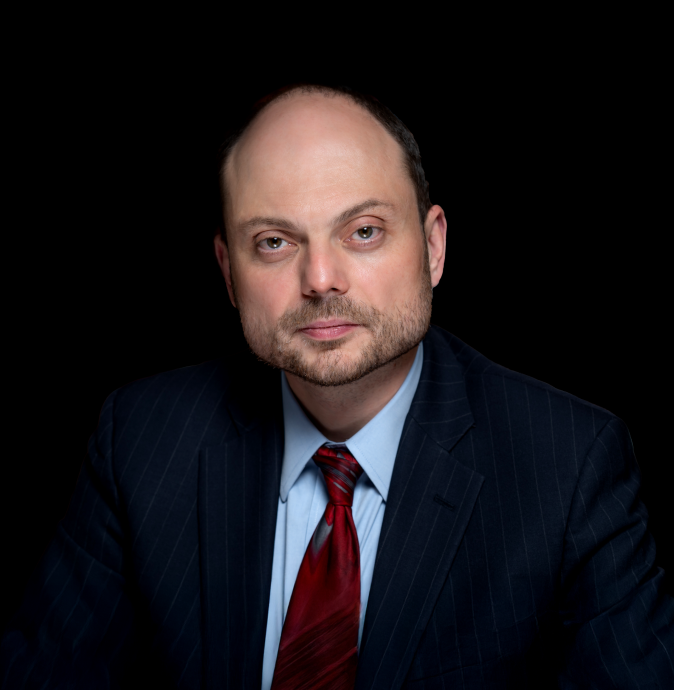The School of Foreign Service’s (SFS) Center for Eurasian, Russian and East European Studies (CERES) appointed its first dissident-in-residence, the university announced Aug. 29.
Vladimir Kara-Murza, the dissident-in-residence, is an outspoken Russian politician and former political prisoner who has been a member of the political opposition to Russian President Vladimir Putin since 2000. He joins the SFS through a program run by the Renew Democracy Initiative (RDI), a pro-democracy group, and will host a speaker series and dissident discussion group for SFS graduate students.

Kara-Murza said he is excited to be a part of the Georgetown community and to engage with the students and faculty.
“The global struggle for democracy and human rights is an endeavour that spans generations,” Kara-Murza wrote to The Hoya via CERES. “I am grateful for the opportunity to share my experience with the younger generation — today’s university students and the leaders of tomorrow — and I cannot think of a better place to do so than Georgetown University.”
Michael David-Fox, director of CERES, said CERES specifically chose Kara-Murza due to his participation in the Russian opposition.
“Vladimir Kara-Murza immediately became our first choice to CERES for many compelling reasons,” David-Fox told The Hoya. “He showed the kind of courage in the face of oppression that is inspiring; he was a political prisoner serving a 25-year sentence in a penal colony in Siberia when he was released in August 2024 as part of a prisoner exchange between the United States and Russia.”
In April 2022, Kara-Murza was arrested for disobeying police officers, launching a string of charges that led to him being sentenced to 25 years in prison on charges of treason and disinformation. He was released in an August 2024 prisoner exchange.
Matthew Miller, a former spokesperson for the U.S. Department of State, said at the time Kara-Murza’s detention was “unjust,” calling the charges “spurious and politically motivated.”
Sean Cailteux (LAW ’26, GRD ’26), a graduate student in CERES, said he believes Kara-Murza’s presence will be valuable for students and faculty.
“I have a lot of respect for Mr. Kara-Murza’s efforts, his courage in the face of grave threats to his personal safety and his perseverance in pursuit of what I perceive as a noble and necessary goal,” Cailteux wrote to The Hoya. “I think his presence and work will be an invaluable resource to CERES students who are interested in contemporary Russian society and politics and efforts to reform and democratize Russia.”
Kristofers Krumins (GRD ’26), a CERES graduate student from Latvia, said he thinks Kara-Murza will be an important resource for students to learn about pro-democracy activism, though he has some concerns.
“It is a rare thing for a university to have a dissident who’s been in prison for quite a long time and has been released during full scale war,” Krumins told The Hoya. “The issue sometimes of the Russian opposition — even though they’re liberal, democratically minded — is that it is not always in line with the Ukrainian position, the European position.”
After years of political and military conflict, Russia launched a full-scale invasion of Ukraine in February 2022. The two countries have since been engaged in a protracted war.
Mark Vodianyi (GRD ’26), a graduate student from Ukraine, said he was shocked by the decision to appoint Kara-Murza to CERES.
“I felt very disappointed that he was appointed to CERES because of his political views back in 2024 when he talked about sanctions against Russia,” Vodianyi told The Hoya. “I mean, I don’t have to tell you how many Ukrainians have died because of this war of aggression, and sanctions were there to undermine the core Russian economy and threaten the Russian regime.”
In August 2024, shortly after he was released from Russian captivity, Kara-Murza gave a press conference with the two other released Russian dissidents where he spoke out against sweeping sanctions on Russia, saying they largely harmed the Russian population.
Vodianyi said he has enjoyed his experience at CERES so far but was frustrated by the choice to bring Kara-Murza to the program in light of these statements.
“I really like my faculty. I really like my program,” Vodianyi said. “But if the university is fine with these political views — I’m not fine with that.”
“If they’re going to have any programming or activities, I will just not be interested,” he added.
Krumins said that despite hesitations, he is still hopeful Kara-Murza’s residency will be a success.
“There has to be some caution, but overall, I think this is nevertheless a welcome step because this person still has proven himself to be a fierce advocate for norms and human rights and democracy that are in shortage in Russia,” Krumins said. “So just to imagine the difficulties that he has gone through to be an advocate for that, I think that is, in and of itself, a virtue to appoint him.”